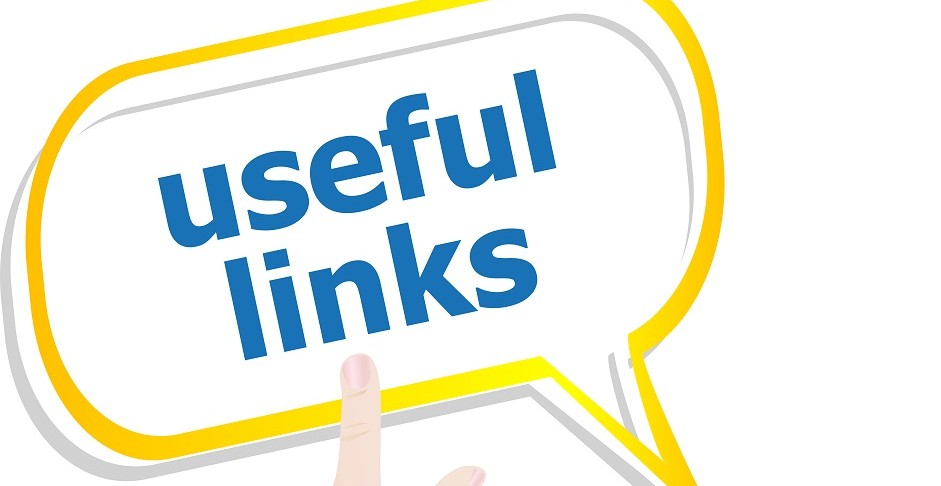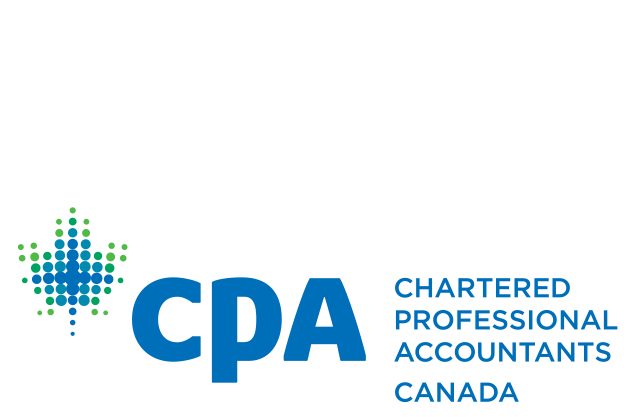Staying current is important for our business and yours. These tax publications and resources are provided for your use. If there is information or issues that you need clarified, don’t hesitate to contact us.
Employee Work-Space-in-Home Expenses
Employees may deduct work-space-in-home expenses if their contract of employment requires them to pay the expenses, and the expenses are not reimbursable by the employer.
Canada Revenue Agency (CRA) form T2200, Declaration of Conditions of Employment, should be completed by the employee and employer in order to claim these expenses. These expenses are entered as a deduction from income on line 22900 (line 229 prior to 2019) of the personal income tax return. The employee will only be able to deducted the expenses that the employer required them to pay, and not all expenses will be deductible.
If you worked from home or are still working from home as a result of the COVID-19 pandemic, it's important to get in writing from your employer that you are/were required to work from home, and what expenses you are/were required to pay for without reimbursement. This is especially important to do NOW, in case your employer is one of the unfortunate ones that will go out of business. At a minimum, get emails from your employer about this. An amended employment contract would be ideal. A T2200 would be very helpful. There will likely be a new T2200-short related to working from home during the pandemic (see below), but it wouldn't hurt to get the current T2200 completed now.
The 2020 Fall Economic Statement announced that the Home Office Expense Deduction will be simplified due to millions of Canadians unexpectedly working from home because of COVID-19. CRA will allow employees working from home in 2020 due to COVID-19 with modest expenses to claim up to $400, based on the amount of time working from home, without the need to track detailed expenses. They will generally not request that employees provide a signed form from their employers.
Further detail will be coming from CRA.
In the October 26, 2020 CPA Canada - CRA webinar on CEWS and more, the issues of home office expenses, commuting, parking, and home office equipment are discussed, Some of the points made:
Commuting/home office expenses:
- Although parking, and travel between the employee's home and place of employment are usually a taxable benefit, a reasonable allowance for additional commuting costs incurred by the employee while the employee continues to work at the employer's place of business, or while working from home, will not be considered a taxable benefit during the pandemic.
- In situations where the employee continues working at their regular place of employment, CRA will not consider the employee to receive a taxable benefit where their employer pays for, reimburses, or provides a reasonable allowance for additional commuting costs incurred by the employee.
- This position is extended to situations where the employee is working from home because the regular place of employment is closed, and CRA would not consider the employee to receive a taxable benefit where the employer pays for, reimburses or provides a reasonable allowance for commuting costs incurred by the employee to travel to the regular place of employment, say to pick up computer equipment or perhaps other office equipment so that they can work from home.
- Both the above positions would be extended to the use of employer-provided motor vehicles for this kind of travel.
- Employers should maintain appropriate records to demonstrate that allowances provided are reasonable in relation to commuting costs.
- Employees using employer-provided vehicles need to keep records of kilometres driven when commuting between their home and the regular place of employment.
- Parking: When the regular place of employment is closed due to COVID-19, the CRA will not consider that an employer-provided parking spot at the place of employment available to an employee’s use would result in a taxable benefit.
- Home office equipment: CRA will not consider an employee to receive a taxable benefit where the employer pays or reimburses up to $500 for computer or home office equipment to enable the employee to carry out their duties. They would expect that the employee would have receipts that they’ve provided to their employer. Equipment could include chairs, desks, monitors and some computer equipment. If the employer pays or reimburses over $500, the excess must be included in the employee’s income as a taxable benefit – unless ownership is retained by the employer.
- Internet / Cell phones: Some employers may choose to reimburse their employees’ internet or cell phone costs. The CRA’s existing policies maintain that the portion used for employment purposes would not result in a taxable benefit in some circumstances.


-
Canada proposes new “Middle class tax cut” starting in 2020
Finance Minister Bill Morneau introduced a motion in the House of Commons to raise the basic personal income-tax exemption to $15,000, which was part of the platform the Liberal party put forward in its bid to keep power in the October election.
The amendments to the Income Tax Act would start taking effect next year, but the Liberals need to get them through a vote. Learn More...
-
Charitable planning — Helping your donation go further
It's important to consider how you will make your donation, because the tax savings you receive depends on the type of gift you make. Whether you ultimately choose to make a cash donation or a tax-effective gift of property (known as a "gift in kind"), you'll still have to make your charitable gifts by December 31, 2019 if you want to claim the donation tax credit on your 2019 tax return.
Generally, your after-tax cost for a $1,000 cash donation in 2019 can range from a low of $460 to a high of $522 if you are a "high income earner" with income over $210,000, and from a low of $500 to a high of $562 if your income is below that amount (depending on your province of residence). Donating property such as securities, artwork, or real estate instead of an outright gift of cash may increase the tax benefits of the donation to you. Learn More...
-
Federal budget 2019-2020
On 19 March 2019, federal Finance Minister Bill Morneau tabled his fourth budget. In keeping with his government's previous themes, this budget focuses on continued economic growth, job creation, upskilling Canadians for the changing economy, support for first-time home buyers, investments in cleaning up the environment, improving relations with Canada's Indigenous Peoples, and a new national pharmacare initiative-all with the aim of supporting and building Canada's middle class. Learn More...
For your convenience we have included important links often used by our clients:
Canadian income tax rates for individuals --Canada Revenue Agency tax information update
Corporation tax rates Information for corporations about federal, provincial and territorial income tax rates.
Canada Revenue Agency The Canada Revenue Agency website, with many valuable tax resources for companies and individuals
Bank of Canada Exchange Rates Official site for Bank of Canada exchange rate information
Tax forms and publications Forms, guides, tax packages, and other Canada Revenue Agency ... Technical publications related to income tax, excise tax, and GST/HST
Province of British Columbia Official site for the Province of British Columbia

Avoid common tax filing mistakes and missed refund opportunities.
Forgetting to put out the garbage, arriving late to a movie or misfiling your tax return – we all make mistakes! While some have more serious consequences than others, these mistakes are often avoidable. Survey shows that 56% of Canadians filed their taxes without the assistance of a tax professional last year. While the independence and initiative to take on such a task is great, it’s important to ensure you’re not making some of the most common filing mistakes. Between tax law changes and unpredictable life circumstances, it’s easy to overlook some aspects that could significantly implicate your tax scenario.
Here are some of the most common tax mistakes Canadians make when filing their own tax return and how to avoid them.
Miscalculations.
It’s common to make mistakes, like math miscalculations, filing status errors or even typos, but to avoid some of the most common tax mistakes like double-reporting, not accounting for earned tips (that’s right, tips are taxable!) or missing key information on your T4 slips, we recommend consulting a tax professional or have someone read over your documents. It never hurts to have a second pair of eyes to ensure you’re being transparent and accurately reporting. Who knows, this might result in an awesome find you could have overlooked!
Canada Revenue Agency (CRA) also has you covered on filling errors with its secure Auto-fill My Return Service. It’s a certified software that allows you to automatically fill in fields, information from previous years’ income tax and benefit return with information that the CRA has available at the time of filing.
Missed opportunities.
It’s important to get what’s yours. Moving expenses, child care expenses and credits for supporting someone with a disability are just a few of the common tax credits and deductions that are missed every year. Additionally, medical treatments, devices and even items prescribed by medical providers but not covered under personal insurance may be claimed as medical expenses. This can also include reading enhancements like contact lenses or glasses, and hearing aids!
Missed part of a previous year’s return.
Did you just realize that you missed a few things from previous years that could have been claimed? Before you start sobbing, we’re happy to tell you that you can adjust old returns from previous years up to the past ten calendar years.? You can request a change to your tax return by amending specific lines to your return. But we suggest waiting until you receive your notice of assessment before asking for changes to your return.
These are a few among a long list of common tax filing mistakes and missed opportunities that those who file on their own make every year. To ensure you’re getting everything you’re entitled to and to avoid having to adjust your return from previous years, we are available year-round to help you.
We can help
